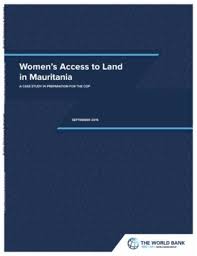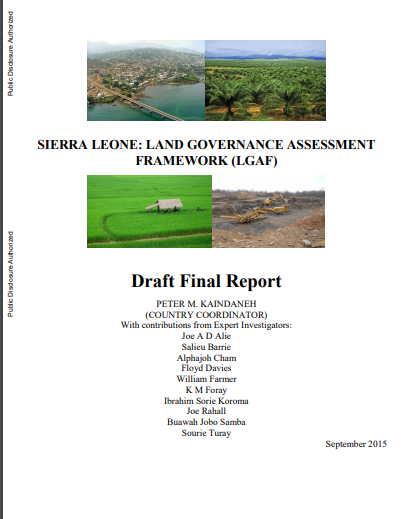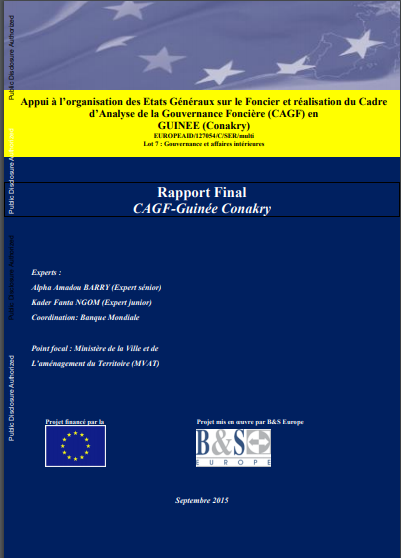The World Bank is a vital source of financial and technical assistance to developing countries around the world. We are not a bank in the ordinary sense but a unique partnership to reduce poverty and support development. The World Bank Group has two ambitious goals: End extreme poverty within a generation and boost shared prosperity.
- To end extreme poverty, the Bank's goal is to decrease the percentage of people living on less than $1.25 a day to no more than 3% by 2030.
- To promote shared prosperity, the goal is to promote income growth of the bottom 40% of the population in each country.
The World Bank Group comprises five institutions managed by their member countries.
The World Bank Group and Land: Working to protect the rights of existing land users and to help secure benefits for smallholder farmers
The World Bank (IBRD and IDA) interacts primarily with governments to increase agricultural productivity, strengthen land tenure policies and improve land governance. More than 90% of the World Bank’s agriculture portfolio focuses on the productivity and access to markets by small holder farmers. Ten percent of our projects focus on the governance of land tenure.
Similarly, investments by the International Finance Corporation (IFC), the World Bank Group’s private sector arm, including those in larger scale enterprises, overwhelmingly support smallholder farmers through improved access to finance, inputs and markets, and as direct suppliers. IFC invests in environmentally and socially sustainable private enterprises in all parts of the value chain (inputs such as irrigation and fertilizers, primary production, processing, transport and storage, traders, and risk management facilities including weather/crop insurance, warehouse financing, etc
For more information, visit the World Bank Group and land and food security (https://www.worldbank.org/en/topic/agriculture/brief/land-and-food-security1
Resources
Displaying 771 - 775 of 4907Women’s Access to Land in Mauritania. A Case Study in Preparation for the COP
Sierra Leone - Land governance assessment framework : draft final report (English)
The importance of land governance in the socio-economic development of a nation cannot be overemphasized, as the allocation of land across competing uses can determine the type and level of economic activities that can be carried out by individuals, groups, and businesses. The need for a systematic assessment of land governance arises from three factors: policy importance, institutional fragmentation, and technical complexity.
Appui à l’organisation des etats généraux sur le foncier et réalisation du Cadre d’analyse de la gouvernance foncière (CAGF) en Guinee (Conakry) : Rapport final (French)
The Land Governance Assessment Framework (LGAF) is a diagnostic tool to assess the status of land governance at country level using a participatory process that draws systematically on existing evidence and local expertise rather than on outsiders.
Household Energy for Cooking
Reliance on solid fuels for cooking is
an indicator of energy poverty. Access to modern energy
services - including electricity and clean fuels - is
important for achieving the Millennium Development Goals.
It can also reduce womens domestic burden of collecting
fuelwood and allow them to pursue educational, economic, and
other employment opportunities that can empower them and
lead to increased gender equality. Similarly, the use of
Good Jobs in Turkey
This joint study, by the World Bank and
the Turkish Ministry of Development, explores the status and
effects of good jobs in Turkey s current economy. After a
brief account of economic events, it examines the
relationship between growth and employment in Turkey, with a
particular regard to the participation of different social
groups in the labor market, such as women and youth. It then
analyzes where jobs are being created and which activities









